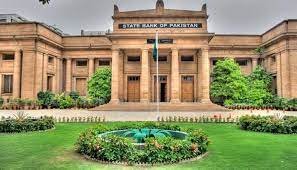State Bank of Pakistan (SBP) has reported that the current account deficit for July 2023 amounted to $809 million. This marks a substantial increase from the deficit of $1.26 billion in the previous year (2022). The stock market also witnessed a negative trend, experiencing a decrease of 107 points.
According to the provided data, the current account surplus in June was $330 million, which makes the July deficit more pronounced. The decline in July’s revenues by 24% to $4.22 billion further contributed to this deficit.
SBP’s announcement highlights that July’s inflows were reduced by 5%, leading to a total of $2.11 billion. Additionally, remittances from overseas workers decreased by 19% to $2.02 billion during the same month.
These economic indicators reflect a mixed scenario for Pakistan’s economy. On one hand, the reduction in current account surplus from June to July signals a potential strain on the balance of payments. The decline in remittances could be a cause for concern, as these inflows play a vital role in supporting the country’s foreign exchange reserves.
The negative trend in the stock market could be attributed to a variety of factors, including global economic conditions, domestic investor sentiment, and geopolitical uncertainties. A decrease of 107 points suggests a level of investor caution and potential volatility in the financial markets.
It’s worth noting that economic indicators can often be influenced by a combination of domestic and international factors. Fluctuations in revenue, remittances, and stock market performance can impact a country’s fiscal health and its ability to manage external payments.
To address the current account deficit and maintain economic stability, policymakers may need to consider a range of measures. These could include promoting exports to increase foreign exchange earnings, encouraging foreign direct investment, and ensuring a conducive environment for remittance inflows. Additionally, efforts to boost investor confidence and strengthen the stock market could play a role in improving economic sentiment.
In conclusion, the recent economic figures from Pakistan highlight both challenges and opportunities. The increase in the current account deficit, coupled with a decline in key economic indicators, calls for careful economic management and strategic planning to ensure the country’s financial resilience in the face of global uncertainties.



